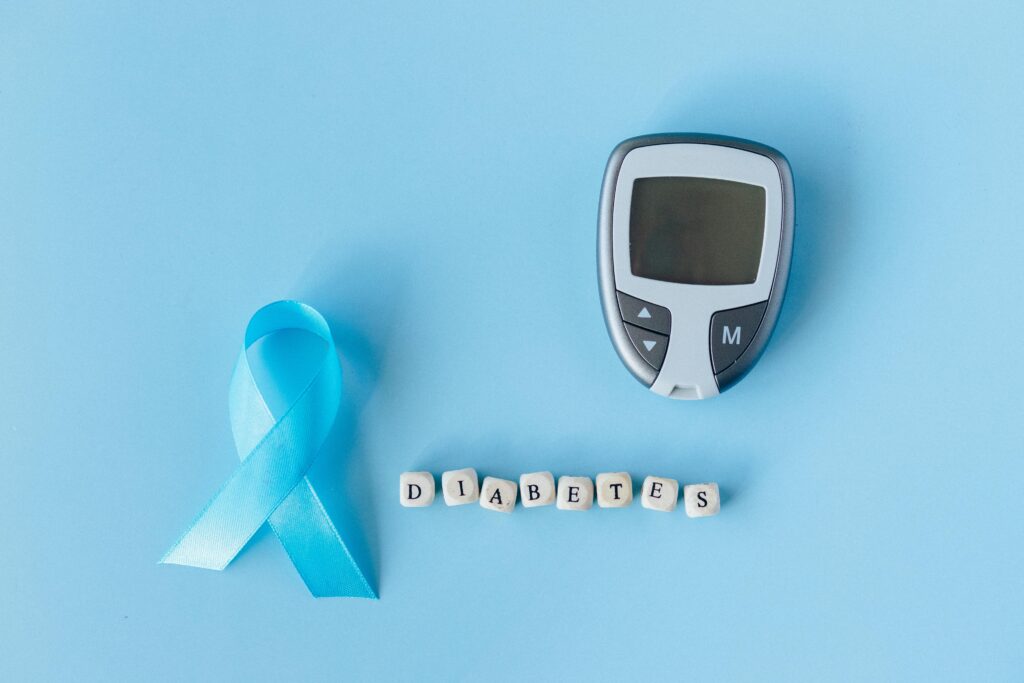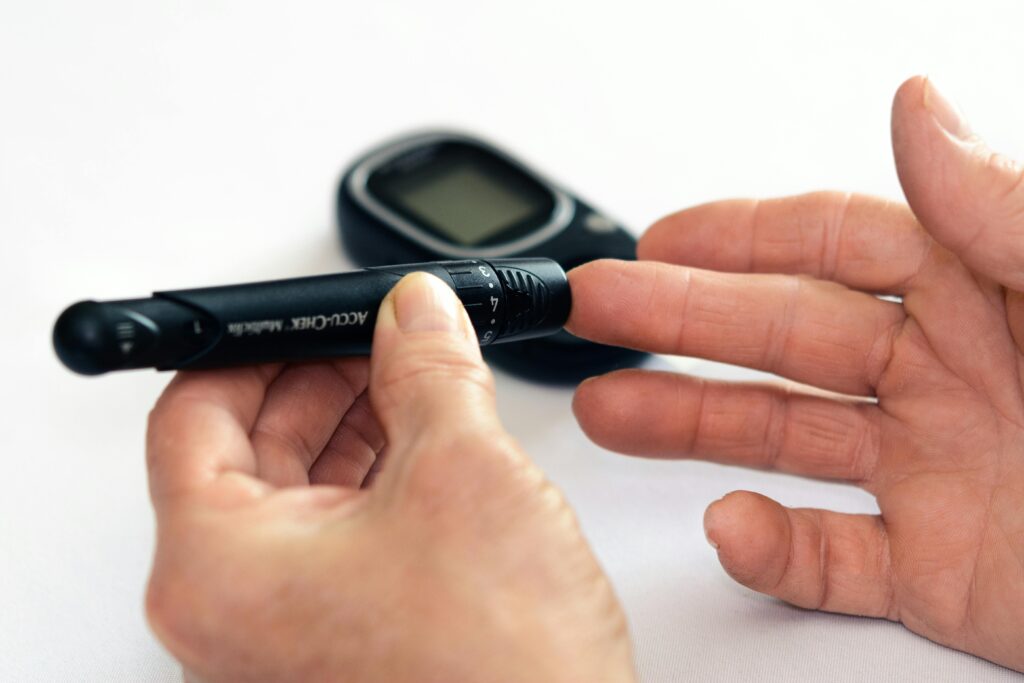Haemoglobin HbA1c
Haemoglobin HbA1c is a critical measure of blood sugar control over time, reflecting the average blood glucose or sugar levels over the past two to three months. Keeping HbA1c levels within a target range is essential for people with diabetes, as it helps reduce the risk of complications. Here’s how you can effectively control and maintain HbA1c levels:
-
- Healthy Diet

A well-balanced and nutritious diet is the cornerstone of managing HbA1c levels. Focus on the following dietary habits:
-
- Low-Glycemic Index Foods: Choose foods with a low glycemic index, such as whole grains, legumes, non-starchy vegetables, and fruits like berries. These foods cause a slower rise in blood sugar.
-
- Portion Control: Pay attention to the portion sizes to avoid overeating, which can lead to blood sugar spikes.
-
- Carbohydrate Counting: Learn to count carbohydrates to better manage your blood sugar levels. Consult a dietitian for personalised advice.
-
- Healthy Fats: To support heart health without spiking blood sugar, include sources of healthy fats, such as avocados, nuts, seeds, and olive oil.
-
- Fibre-Rich Foods: Foods high in fibre, like vegetables, fruits, and whole grains, can help stabilise blood sugar levels.
-
- Regular Physical Activity
Physical activity plays a crucial and significant role in lowering and maintaining HbA1c levels.
-
- Aerobic Exercise: Engage in activities like walking, cycling, or swimming for at least 150 minutes weekly. Aerobic exercise helps improve insulin sensitivity.
-
- Strength Training: Incorporate resistance training, such as weightlifting or bodyweight exercises, at least twice a week to build muscle and enhance glucose uptake.
-
- Consistency: Aim for regular, consistent exercise rather than sporadic, intense workouts. Consistency is key to maintaining stable blood glucose levels.
If prescribed medication, it is crucial to take it exactly as directed by your healthcare provider.
-
- Oral Medications: Follow your prescription for oral diabetes medications, which help lower blood sugar by various mechanisms.
-
- Insulin Therapy: If you are on insulin, adhere to your dosing schedule and regularly monitor your blood sugar levels.
-
- Consult your doctor: Never adjust your medication dose without consulting your healthcare provider, as this can lead to dangerous fluctuations in blood glucose.
-
- Regular Monitoring
Regular monitoring of the blood glucose levels helps you understand how your lifestyle and medication affect your HbA1c.
-
- Self-Monitoring: Use a glucometer to check your blood sugar levels at home, especially before meals and two hours after eating.
-
- Continuous Glucose Monitoring (CGM): A CGM device provides real-time glucose readings day and night, offering valuable insights into trends and patterns.
-
- HbA1c Testing: Schedule regular HbA1c tests as your doctor recommends, usually every three to six months, to track your long-term blood sugar control.
-
- Stress Management
Stress can adversely affect blood sugar levels; therefore, managing stress is crucial.
-
- Relaxation Techniques: To reduce stress and promote mental well-being, practice relaxation techniques such as deep breathing, meditation, or yoga.
-
- Adequate Sleep: Ensure you get 7 to 9 hours of quality sleep per night, as sleep deprivation can negatively impact blood glucose control.
-
- Social Support: To manage stress effectively, engage in social activities and don’t hesitate to seek support from friends, family, or support groups.
Understanding diabetes and its management can empower you to take better control of your HbA1c levels.
-
- Diabetes Education Programs: Participate in diabetes education programs that cover nutrition, exercise, medication, and lifestyle changes.
-
- Stay Informed: Keep yourself up to date on the latest research and guidelines related to diabetes management.
-
- Regular Healthcare Visits
Regular check-ups with your healthcare team are crucial for monitoring your progress and making necessary adjustments to your treatment plan.
-
- Routine Appointments: Regularly visit your endocrinologist or primary care physician to review your HbA1c levels and overall health.
-
- Team Approach: Work with a healthcare team, including a dietitian, diabetes educator, and possibly a mental health professional, to address all aspects of diabetes care.
Conclusion
Managing HbA1c levels is a multifaceted approach that involves a combination of diet, exercise, medication adherence, stress management, and regular monitoring. By making informed lifestyle choices and working closely with your healthcare team, you can effectively control your HbA1c levels and reduce the risk of complications associated with diabetes.

